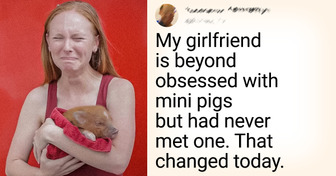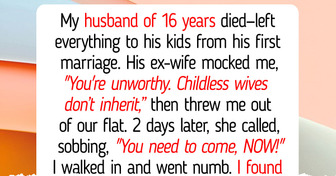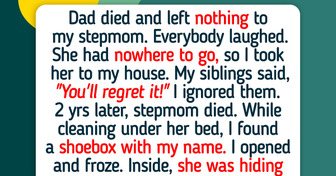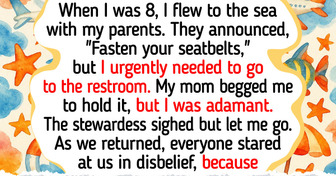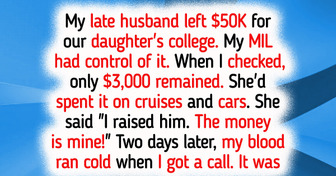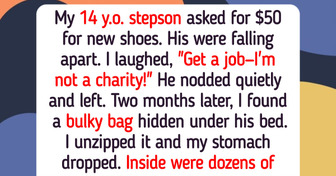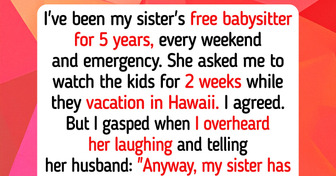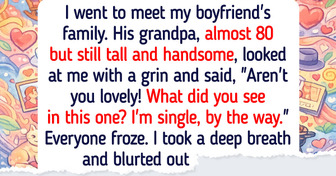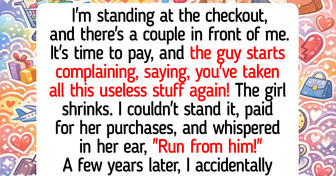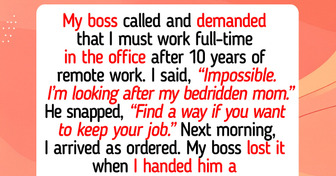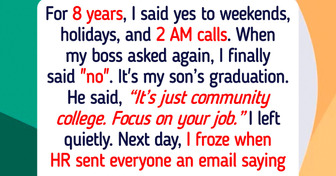17 Totally Irritating Things That Will Make You Gasp in Despair
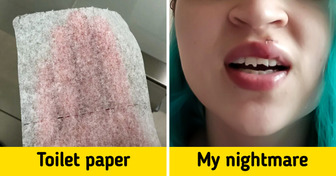
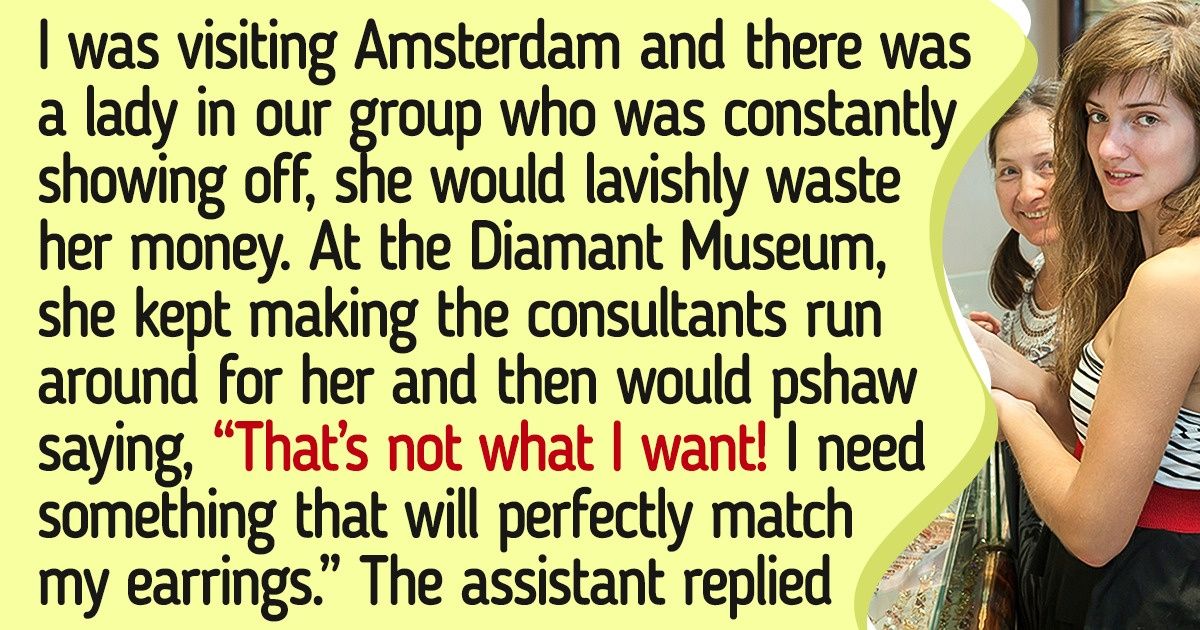
Most often foreigners associate the Netherlands with tulips, windmills, endless canals, and inhospitable, rainy weather. Their name means “low lands” because one-quarter of the country’s territory is located below sea level. Who knows, maybe it’s the centuries-old struggle with nature that made these people so practical, hardy, and imperturbable.
Bright Side decided to dig below the superficial facts about this country and learn more about the habits and lifestyle of Dutch people.
This country is filled with various deals, promos, bargains, and life hacks for saving one’s money in practically any sphere of life. The spendings of each family are strictly controlled. Of course, there are some presents during the dating period between a couple but most often they are quite simple: cards, toys, keychains. As the relationship develops, the famous European prudence takes the main position.
A girl who has lived in Holland for 3.5 years shares her experience, “I learned to take a shower in less than 10 minutes. I also learned to wash the dishes in a pot or in a sink and not remove the foam but instead, dry the dishes with a towel in order to not waste the water. I learned to wash clothes in the evening because it’s cheaper and buy discount products at markets. I’ve gotten used to having a discount card for transport, museums and movie theatres. Basically, it can be called an advantage but ... you might not believe me but when I say I visited some people’s homes, I saw them not flushing the toilet after using it because they ‘only peed there.’ I didn’t try to clarify how many times one toilet bowl can go without flushing.”
Here is another story about the national respect for saving, “We were quite surprised when, during the rush hour at the market, our cashier kept persuading us to get a second box of grapes. It is free today! Not only was the entire line patiently waiting while my husband ran to the other end of the store to get those grapes, but they were also persuading us to do it.”
That’s the very thing that some ex-pats find difficult to get used to, "2.5 years ago, my friend moved to the Netherlands, I helped him rent an apartment, find a job, and explained how to live here frugally (not to use a lot of water and electricity, etc.). It was obvious that he didn’t understand my advice. Eventually, he got a €600 ($715) bill for electricity and 3 fines at €300 ($360) each for breaking road rules. Eventually, my friend returned to his motherland and said, “Europe is cool, but I am not going to bathe in a washbasin.”
They ride bikes, bring lunch boxes from home, and don’t ditch expired products if the latter still smell good — all these are normal things in the Netherlands. But here are a couple of examples of this behavior from locals that have literally shocked foreigners.
Seeing 2–3 kids in one family is a normal thing. Mothers and fathers share responsibilities about taking care of their kids equally. It’s customary to spend Sundays with the whole family doing some physical activity like jogging, swimming, surfing, or boating. The main event of each day is dinner. Local people use the term “gezin,” which includes people who you live with (mother, father, kids). Dinners are only for gezin. And anyone who is out of this circle is usually asked to leave the party.
Here is what one girl said about her experience, “One of the brightest impressions about my first months of living in Amsterdam is the story of my foreign colleague who claimed that her son, who stayed at his friend’s place after school, was sent home with the following words, ‘Sorry, we are going to have dinner. It’s time you went home.’ The reaction of our Dutch colleagues to this story turned out to be even more shocking, ‘What’s wrong? Everything is correct. They have likely cooked dinner that will suffice for their family only!’ Today, after 2 years, I see a different explanation of this story: the tradition of family dinner is so natural and unshakable here that when sending a foreign child back home, the Dutch are sure that they are doing kind things, because the kid’s parents are also waiting for their kid to come for dinner... at 6 p.m. precisely!”
Local people “shoot straight from the hip,” and tell the truth to absolutely everyone. They’ll openly say that you don’t look good today or that you are doing something wrong at work. “I believe your idea is absolutely terrible,” is a totally normal reaction that a subordinate might say to their boss during a work meeting. Their straightforwardness might seem extremely rude. But they don’t intend to insult anyone, they are just simply brought up this way.
Here is the situation one girl encountered, “Brutal honesty — in any conversation with a Dutchie, I have at least one open-jawed, giggling moment when they say something totally offensive to me or others, with a completely straight face, because they don’t understand why you should sugar coat any truth. This is my favorite aspect of the culture.”
Another young man shared his opinion, “When the adaptation period is over, you start to understand how cool it is to have a chance to say everything straightforward, to say what you think about the behavior of someone you don’t know very well and see them listening to you and occasionally agree. At the same time, you should be ready to have them state their real opinion about you too. Right to you, not behind your back. Any employee can openly tell to their manager that they are wrong. If it’s true, the manager will correct their commands and tasks.”
Here is a story that a girl from the Ideer website shared, “I was visiting Amsterdam and there was a lady in our group who was constantly showing off, she would lavishly waste her money, sweating in expensive fur coats. At the Diamant Museum, she kept trying everything on, making the consultants run around her and then pshawed scornfully, ‘It’s not what I want!’ She stretched out her earrings to the assistant and said, ‘I need something that would ideally match my earrings.’ The assistant replied, ‘A crystal decanter would match your earrings perfectly.’ I haven’t been at such a mass session of malevolence since then.”
The Queen of the Netherlands on a bike
The country has 18 million registered bicycles, which is slightly more than the number of people living here. Separate roads have been built for cyclists, there are even intercity bicycle highways, and there are separate bicycle traffic lights at most intersections. Oftentimes, one can see the following scene — a woman is riding a bike, which has a wagon in front with her kids in it.
One young man who moved to the Netherlands shared the following, “The first thing I did when I moved here was buying a bicycle and I’ve actively been using it ever since. However, it’s customary to buy a massive chain together with this means of transport. If you leave your bike unchained for a night, you risk not finding it the next morning. As the Dutch joke goes — in this case, you get the moral right to restore justice and steal someone else’s bike as well. Well, it’s actually not a joke. That’s why new bikes are not used here much because it’s unlikely that someone will steal your old rattletrap.”
Usually, the first weather forecasts about the upcoming frosts are enough for the Dutch to start preparing their skates. When all the rivers and canals freeze, the city authorities measure the thickness of the ice and officially give permission. Residents rush to the nearest canal. When the winter sets in completely, skating fans can be seen on every frozen pond, lake, and anywhere else with ice on it.
The Dutch language includes many hissing and growling sounds. The most widespread sound resembles “h” and “g” and sounds as if a person has something stuck in their throat and wants to cough this thing out (have you tried to pronounce it?). Even after several years of attending language courses, it might be quite difficult to understand what your friend is saying. And don’t say to local people that their language resembles German. They don’t like these comparisons.
When it comes to English, this language is everywhere: on TV and in movie theaters. The movies are usually broadcast either in Dutch with English subtitles or vice versa.
Local people relate to everything philosophically. And this attitude is called something like “It happens.” If something extraordinary takes place, they say an indifferent “It’s ok,” and the issue resolves by itself. For example, there is a lot of snow outside in the morning and there is no snow cleaning equipment. Many offices don’t open and call their clients from home saying, “It happens.”
Local people adore bread and cheese, which serve as the main products that are eaten for breakfast, lunch, and snacks. “In many preschools, it’s not customary to feed kids hot food. The whole day they mainly eat fruits, snacks, and, of course, sandwiches.” The Dutch explain this attitude toward food quite simply: “a nicely done sandwich from fresh bread contains all the necessary calories, nutritional elements, and vitamins,” one girl said on Pikabu.
In fact, they have only one hot meal during the day — and it’s for dinner. Oftentimes, they buy ready-made soups, pour them into a pot, and heat it up on the stove. The soup will only have a couple of carrots and several pieces of meat. If they cook by themselves, the base for soups will mainly be made from peas.
At the same time, there’s an abundance of dairy products here: many varieties of yogurts and sour cream (things that are hard to find in other European countries). They actively sell fish in seaside towns. There are fish restaurants and shops near the beach that sell fish for every taste: dried, smoked, fish sticks, chips, seafood cocktails. Locals don’t bother with cooking much, preferring to buy semi-finished products or something ready-made that they can just reheat in the microwave.
“Typical Dutch food”
Taking a shower daily is obligatory among local people and they spend quite much time brushing their teeth. They are ready to clean their houses for hours but... they don’t consider it necessary to wash their hands. Oftentimes, they don’t do it when they come from outside nor do they do it after using the toilet, or before eating. It is considered to be better for the immune system — the body adjusts and becomes more resistant to viruses.
Here is what one Russian girl, who married a Dutch man, wrote in her blog, “My husband kept resisting for a long time when I would give him a wet wipe in a cafe to sanitize his hands before having a meal or drinking coffee. ‘Why?’ he kept asking. ‘It’s necessary,’ I would answer. He would wipe his hands while grunting and calling me a dictator. Now he does all these things without asking.”
A paid maternity leave lasts for about 16 weeks. In the families where both parents are working, kids go to preschools. In most cases, grandparents don’t babysit them because they have their own lives and they want to enjoy their well-deserved rest in retirement. In most families, both parents work. Not only does it provide a higher income, but it serves as a sort of guarantee of a woman’s independence. Candidates who have kids are offered reduced working hours at job interviews: 32 or 36 hours instead of 40.
A girl who lives in the Netherlands wrote the following, “I didn’t quit my work when I had my daughter but I reduced the number of working hours to 4 days a week. Every parent has a right to decrease the number of working hours and the employer has no right to say no or fire a person for this reason. That’s why many couples don’t work a full week. My partner and I both work 4 days a week and apart from the weekend, each of us spends one full day with our daughter during the week. The rest of the days our daughter goes to preschool.”
However, there are certain difficulties that can be attributed to the early start of work after childbirth — since women have little time to dedicate to their kids, kids end up wearing diapers until the age of 4. Books like How to Potty Train Your Child at the Age of 4 are quite popular here. There are usually no toilets in preschools, because it’s quite convenient for everyone when kids wear diapers.
Dutch kids have been recognized as the happiest in Europe. A lot depends on the healthy atmosphere in the family. The main idea of local mothers is quite simple: kids don’t change their lives, they complement them. Mothers don’t neglect their personal life — they continue to work, meet with their friends, and find time for their own personal interests.
They try to ease their routine life as much as possible — every household has a washing machine, a dishwasher, and a robot vacuum cleaner. Dinners are cooked from pre-chopped, marinated, and portioned products. Instead of exhausting walks with strollers, they prefer riding a bike, all together.
“I’ve lived in Amsterdam for 2 years and I have never seen mothers scolding or punishing their kids in public, or apologizing to those surrounding them, for their baby’s cries. Moms here consider every kid a unique personality who needs love, and help expressing and understanding themselves in this world,” one girl wrote on Pikabu.
Good working conditions and strong labor laws are the reasons for their very low unemployment. But at a job interview, the main thing to do is to not show that you are a workaholic and to not talk about your readiness to overwork — this is a disadvantage, not an advantage for the candidate. People don’t stay late at work, that’s why seeing someone in the office after 6 p.m. is actually quite strange. The Dutch always control the number of working hours, because they are scared that someone will burn out at work or that they won’t be able to dedicate enough time to their family.
Paid sick leave connected with a burnout at work is quite widespread in the Netherlands. To apply for it, you need to get a prescription from a psychologist or family therapist, but it’s the employer who makes the final decision. If they agree with the diagnosis, they will have to pay the employee a salary for the 2 first years of their illness.
If you are sick, you need to make an appointment with your family doctor. They will most likely recommend getting more rest and prescribe you paracetamol. This is the main advice in the offices of general practitioners. If the paracetamol doesn’t help, the patient is automatically referred to doctors with more narrow specialties. You can’t sign up for an appointment with a specialist by yourself and this system can cause you to lose time if what you have is serious. However, it’s worth noting that after breaking the family doctor “barrier,” you get access to very effective modern medicine.
The locals mark the birthdays of their relatives, friends, colleagues, and even neighbors on a special calendar. It’s customary to hang them in their bathrooms so that they don’t miss an important date. If you are in the bathroom in someone’s home, you must remember that in no case should you yourself write down your name on the calendar. If you thought that you were friends, but you don’t see a note about your birthday on this calendar, well, according to the Dutch, it means you are not as close as it seemed you were.
The most popular means of transport is the bicycle, while their garbage is sorted so carefully that even the glass is sorted by color (white, green, and brown). There are shops that don’t use plastic and cellophane for packaging, as well as many brands that stand up for the protection of the environment.
The law doesn’t establish responsibility for refusing to sort garbage, but there is a certain motivation for doing it — people who actively sort out their garbage are presented with a coupon that gives a discount when paying for housing and utilities. Moreover, farmers were able to almost completely eliminate the use of pesticides and reduce the use of antibiotics in poultry and livestock breeding by 60%.
Once the sun comes out from behind the clouds, people rush to the streets and open cafe terraces to drink coffee — many of them also start having BBQs in their backyards. Also, many people go to the sea to cities like the Hague and Zandvoort. People swim in the water even when it’s only 60°F outside. Also, it’s very convenient to travel around Europe from Amsterdam — you can get to Brussels within a couple of hours and to Paris within 5 hours.
One girl moved to the country of tulips and her colleague surprised her on her very first day, “A special type of extreme tourism is quite widespread in the Netherlands — it is when they travel several days by the Trans-Siberian Railway Network in a reserved seat carriage (in Russia). On my first working day, I learned that my colleague did it and he liked it a lot.”
“Probably the Dutchest picture of Holland I’ve ever taken.”
Would you be able to live in a country with this lifestyle?

